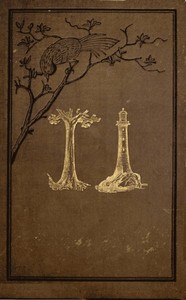Nature's Teachings: Human Invention Anticipated by Nature by J. G. Wood
"Nature's Teachings: Human Invention Anticipated by Nature" by J. G. Wood is a scientific publication written in the late 19th century. The work explores the profound connections between natural phenomena and human inventions, arguing that many technological advancements have their origins in nature's designs. Wood's perspective emphasizes that through observation and study of nature's prototypes, humans can create more effective tools, structures, and systems. The opening of this book introduces its central
thesis: that nearly every human invention has a counterpart in the natural world. Wood begins by contrasting poetry and science, using the example of the Paper Nautilus to illustrate how poetry has historically romanticized natural entities that are merely imaginative. He then shifts focus to the example of the Velella, a marine organism that functions like a sailboat, highlighting how nature provides not only inspiration but also physical analogs for human technology, such as boats and propulsion systems. Wood furthers this idea by connecting other biological forms, like the Water-snail and Gnat, to their invented counterparts, establishing a framework for the chapters that follow, which will explore various inventions inspired by natural phenomena. (This is an automatically generated summary.)
Read now or download (free!)
| Choose how to read this book | Url | Size | ||||
|---|---|---|---|---|---|---|
| Read online (web) | https://sendtokindle.compellingsciencefiction.com/ebooks/53300.html.images | 1.2 MB | ||||
| EPUB3 (E-readers incl. Send-to-Kindle) | https://sendtokindle.compellingsciencefiction.com/ebooks/53300.epub3.images | 24.5 MB |
Send
to kindle email: |
|||
| EPUB (older E-readers) | https://sendtokindle.compellingsciencefiction.com/ebooks/53300.epub.images | 24.4 MB | ||||
| EPUB (no images, older E-readers) | https://sendtokindle.compellingsciencefiction.com/ebooks/53300.epub.noimages | 516 kB | ||||
| Kindle | https://sendtokindle.compellingsciencefiction.com/ebooks/53300.kf8.images | 32.2 MB | ||||
| older Kindles | https://sendtokindle.compellingsciencefiction.com/ebooks/53300.kindle.images | 32.0 MB | ||||
| Plain Text UTF-8 | https://sendtokindle.compellingsciencefiction.com/ebooks/53300.txt.utf-8 | 1021 kB | ||||
| Download HTML (zip) | https://www.gutenberg.org/cache/epub/53300/pg53300-h.zip | 25.2 MB | ||||
| There may be more files related to this item. | ||||||
Similar Books
About this eBook
| Author | Wood, J. G. (John George), 1827-1889 |
|---|---|
| Title | Nature's Teachings: Human Invention Anticipated by Nature |
| Note | Reading ease score: 65.5 (8th & 9th grade). Neither easy nor difficult to read. |
| Credits |
Produced by Chris Curnow, Chuck Greif and the Online
Distributed Proofreading Team at http: //www.pgdp.net (This file was produced from images generously made available by The Internet Archive) |
| Language | English |
| LoC Class | Q: Science |
| Subject | Natural history |
| Subject | Inventions |
| Category | Text |
| EBook-No. | 53300 |
| Release Date | Oct 17, 2016 |
| Most Recently Updated | Jan 24, 2021 |
| Copyright Status | Public domain in the USA. |
| Downloads | 192 downloads in the last 30 days. |
| Project Gutenberg eBooks are always free! | |

